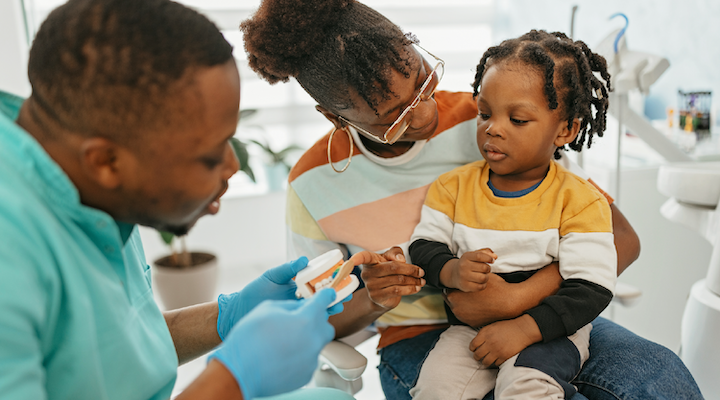Oral health is an integral part of overall well-being, yet many communities continue to face disparities in accessing oral health care and achieving optimal oral health. As part of an overarching strategy to address these disparities, Delta Dental of Colorado Foundation (DDCOF) launched a workforce initiative in 2021, with the goal of increasing the number of dental professionals in Colorado. Research shows that patients who have positive experience with a dentist or oral health practitioner who share aspects of their background (such as language and racial or cultural experiences) with them will increase their likelihood of returning to see their dental provider in the future. Recognizing this, DDCOF aims to diversify the oral health professions to reflect the demographics of the state and improve oral health outcomes of those communities experiencing health inequities.
Delta Dental of Colorado Foundation’s Efforts to Build a More Diverse Oral Health Workforce
With more than $9.8 million in investments in dental hygiene growth and expansion across Colorado, DDCOF is funding college and career pathway programs to increase outreach, recruitment, enrollment, and retention into oral health training and educational programs.
New grantee partners, such as Generation Schools Network (GSN), who reach more than 20,000 students across the state, are integrating a comprehensive oral health career component into their pathway programs. DDCOF is also funding Aurora Public Schools to work with Pickens Technical College to promote enrollment into and preparation for dental hygiene programs among current and incoming dental assisting students and graduates.
The Colorado Community College system as well as institutions such as Colorado Mountain College are important partners in DDCOF’s efforts to diversify the dental hygiene field by both focusing on recruitment and retention of students of color and first-generation college students, as well as growing the number of dental hygiene programs in Colorado.
Examining Barriers for Dental Hygiene Students of Color
In 2021, DDCOF also funded the Colorado Community College System to examine barriers to entry and completion of dental hygiene programs for students of color across its colleges. The dental hygiene programs that participated in the assessment included Pueblo Community College, Community College of Denver, and Colorado Northwestern Community College—all schools that currently have accredited programs.
The colleges examined barriers to entry and completion, assessed components of the program lifecycle, including completion of prerequisites, application, matriculation, course completion and graduation, and infrastructure and programmatic barriers that hinder recruitment, admission, retention, and graduation for students of color. In addition, the colleges interviewed students about their experiences in the programs. The findings included:
- In general, the dental hygiene student demographics in programs matched or exceeded the rates of people of color in their surrounding communities. In programs where the dental hygiene student population did not reflect the diversity of the community, the programs have focused on building relationships with organizations serving students of color and conducting more outreach.
- One of the largest disparities to entry for students of color into dental hygiene programs is the completion of prerequisite coursework for the programs. One program director reported that they highly encourage concurrent enrollment into the English prerequisite class (ENG 2021), which is the course with the lowest completion/passing for students of color interested in a dental hygiene program.
- While pass rates for prerequisite courses are higher among white students compared to students of color, the good news is that pass rates for core dental hygiene programs are high and similar for both groups. Pass rates of these core classes are around 90% for both groups of students, which indicates that when they are enrolled, all student groups are likely to complete the program.
- Despite the high graduation rates of the dental hygiene students, the findings show that throughout the COVID crisis there was a decline in graduation rates of students of color, who report that their main challenges have been making ends meet, the need for childcare, and other financial challenges. Overall, as a field, dental hygiene remains disproportionately underrepresented by people of color, which all schools recognize as an area for improvement.
Diversity in dental hygiene is crucial to address oral health disparities and improve outcomes for underserved communities.
DDCOF’s workforce initiative grantee partners represent a collective effort to build a more inclusive oral health workforce in Colorado. By increasing representation, supporting students of color, and investing in educational programs, DDCOF is paving the way for better oral health outcomes for all of Colorado’s residents.

